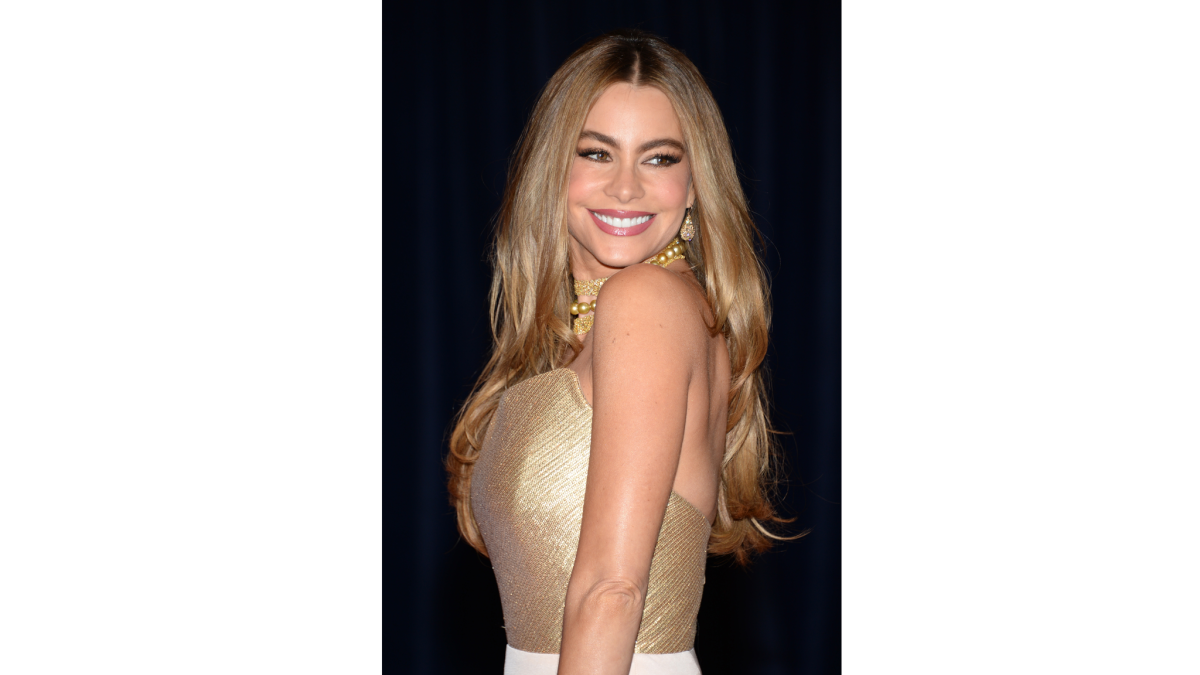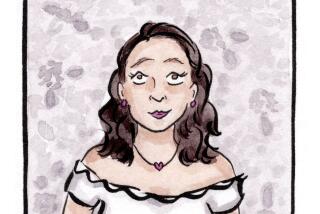Opinion: What’s so offensive about Esquire’s praise of 42-year-old women?

Tom Junod set the social web aflame with his article praising 42-year-old women. Never did one think that Esquire, a men’s magazine that’s stayed above the lad mag fray, could enrage so many people. But that it did, with people accusing Junod of sexism.
“Let’s face it: There used to be something tragic about even the most beautiful forty-two-year-old woman,” Junod begins. Now, he writes, “it may be said that the best thing that forty-two-year-old American men have going for them is forty-two-year-old American women.”
It might sound like a compliment, but women aren’t buying it.
“Why, used to be, a woman at the age of 42 could hardly be glanced at, much less taken to bed and ravaged shame-free in broad daylight. No longer. Esquire has sent word across all channels that 42-year-old women … are no longer off-limits to respectable men,” Jezebel’s Tracy Moore snarks.
When I was growing up, my mother celebrated her 40s, often declaring it the best time of a woman’s life. So my immediate reaction on seeing Junod’s article was duh. And nothing wrong with Junod writing this: “In a society in which the median age keeps advancing, we have no choice but to keep redefining youth. Life lasts longer; so does beauty, fertility, and sex. And yet forty-two-year-old women are not enjoying some kind of scientific triumph but rather one of political and personal will.” Although it would have been better coming from a woman.
But then he goes into jerk territory with comments like this one. “Go to a party: There is simply no one as unclothed as a forty-two-year-old woman in a summer dress. For all her toughness, and humor, and smarts, you know exactly what she looks like, without the advantage of knowing who she is.”
To which the Guardian’s Jessica Valenti rebuts: “Certainly, women over 40 deserve more reverence and respect than they typically get… But the validation that women seek is generally not of the erection-producing variety. It’s very nice and all that writers are catching on that women of all ages can be sexy, but framing that as an amazing new discovery makes it more about men than it is about us (which feels about par for the course).”
I asked some of our female writers for their thoughts, and here’s what they had to say.
Where has Junod been?
Well, thank goodness Esquire magazine and writer Tom Junod have deemed 42-year-old women sexy. (Or at least the ones who do Pilates and yoga.) Whew. What a relief. With the blessing of one of America’s premier men’s magazine, now women in their 40s are no longer “tragic” and can engage in consensual relations without being “predatory or desperate.” (Apparently, that’s the way it was. Who knew?)
And, men, you now have Esquire’s permission to objectify women in their 40s without being creepy to other men. (But, again, only if the women do Pilates and yoga.) This expands your potential ogling to hundreds, even thousands more women each year.
Kidding aside, I find the whole premise of the piece to be completely outdated, if it was ever true to begin with. It’s as though Esquire and Junod have been cryogenically frozen for the last 20 to 30 years and woke up to discover this new creature in mass media called the Modern Woman. She’s independent! She’s empowered! She’s still sexy at 40!
But my biggest complaint is that Junod and Esquire reinforce the sexualization of women in general -- the idea that the value of a woman is how much she arouses a man.
--Kerry Cavanaugh, Times editorial writer
Don’t listen to a man in feminist clothing
What has happened to the 42-year-old woman -- and the 30-year-old one, and the 60-year-old one and, I hope, the 16-year-old one -- is that she does not need Esquire magazine or any stereotyping writer dressed in feminist clothing to define her worth or her allure by his own narrow definitions.
The 42-year-old woman who hones her mind, or her generosity toward others, or her force of character, instead of her body, will continue to be defined best by her values and the values of other deeper-thinking people who look at more than whether a woman is “desperate” or yoga-toned or scantily clad or “tough.”
Many people, men and women, are opening their eyes and minds to new definitions of attractiveness and the arc of aging. Think of the young woman who is winning worldwide praise for the photo showing herself wearing a bikini and her colostomy bag. As forward-thinking as Tom Junod’s article purports to be, he reveals himself to be more a relic of mid-20th century values than as a smasher of them.
--Karin Klein, Times editorial writer
Where Junod is right, and where he’s wrong
After reading Tom Junod’s ode on the glories of 42-year old women, my first reaction was: Sophia Vergara is 42? She looks so much younger! My second reaction: The fabled Mrs. Robinson of “The Graduate” was 42? She looked so much older! Right. As Esquire magazine points out, 42 is not what it used to be. But I wouldn’t zero in on women in their 40s as the breakout generation for the physical and psychic revolution Esquire credits to them. Never before have women in their 40s and 50s and 60s and 70s aggressively taken such good care of their bodies and sloughed off old-school restraints on dressing their age, whatever that is. (I say this as a woman in her mid-50s who bought a halter dress yesterday.)
Hollywood still worships young female flesh (think of whatever obscure young actress Vanity Fair spotlights like a pin-up on an inside page each month), but Junod is right that the entertainment industrial complex has expanded its outlook somewhat to deem actresses in their 40s still beautiful -- and bankable -- not just fadingly beautiful. What hasn’t changed, apparently, is the conceit of older men lusting after younger women: Junod is in his mid-50s. Let me know when he writes a paean to women in their 60s.
--Carla Hall, Times editorial writer
It misleads women into thinking they have time
The real problem with Tom Junod’s article isn’t just that it gives new meaning to the saying “There’s no fool like an old fool.” It’s the message it conveys to women who may get the idea that they actually may still be as attractive in their early 40s as they were in their early 20s -- and therefore they can safely put off for decades any serious thoughts about finding a suitable marriage partner, or even worse, ditch their bore of a husband because they can always find someone richer and better-looking out there, can’t they?
Junod singles out Sofia Vergara as his quintessential fabulous 42-year-old. Yes, she looks great. That’s because she’s in the top 1% of the world’s most beautiful women of any age. Most 42-year-old women don’t look like Vergara. They look, well, average, because they are average in the looks department. No matter how many Pilates they sweat through.
And the reason that men don’t go for 42-year-olds the way they go for 22-year-olds has nothing to do with how unenlightened they are about feminism, or whether they appreciate the sense of humor that Junod thinks makes older women ultra-sexy. It has to do with female fertility, linked inextricably with youth in the evolutionarily programmed male hindbrain. Women in their 40s may look good, especially to men who are a lot older, but they can’t compete with women in their 20s when it comes to men who are around their own age.
So women -- have a good laugh at Tom Junod’s expense, but don’t listen seriously to a word he says.
--Charlotte Allen, contributing bloggerWhat should really make us mad? Esquire played us
This piece was a success on every level. It got people talking about Tom Junod, who’s been writing for magazines for two decades but tends not to get talked about in the ways that are now considered to matter the most. It got people talking Esquire, a magazine that’s been around since 1932 and whose longtime brand, which might be called high-brow masculinity (a field guide to becoming The Most Interesting Man in the World) has been overtaken in recent decades by the less “interesting,” more tweetable memes of publications such as Vice and Maxim.
Even better, the people talking about the article now have people talking about them. Just about every blog or online magazine that’s remotely concerned with women or pop culture or sex and that needs to post new stories every 10 minutes lest it turn dinosauric like Esquire is generating major hits thanks to this essay. And the writers whipping out these posts are getting lots of praise and attention and high fives on social media and elsewhere, not just because many of them are genuinely smart and funny but because articles like Junod’s are such low-hanging fruit that even those who aren’t particularly smart or funny can jump on the indignation train and appear to be so.
Not that there isn’t plenty to be indignant about. But I’d caution against making Junod himself the first stop on that train. Yes, his paean to the 42-year-old woman fell into that category of magazine writing that sounds more like a parody of magazine writing -- at least the half-bombastic, half-twee style that proliferated in the 1990s, the era in which Junod established himself and, it should be said, wrote some stories that address subjects likely of great interest to many of his current detractors. But something tells me he didn’t mean a word of this one. Something tells me that for Junod this was mostly an exercise in seeing what he could get away with. For his editors, it was surely designed as clickbait from the start. And how right they were. Congratulations to us all.
--Meghan Daum, Times columnist
Follow Alexandra Le Tellier on Twitter @alexletellier
More to Read
Start your day right
Sign up for Essential California for news, features and recommendations from the L.A. Times and beyond in your inbox six days a week.
You may occasionally receive promotional content from the Los Angeles Times.






